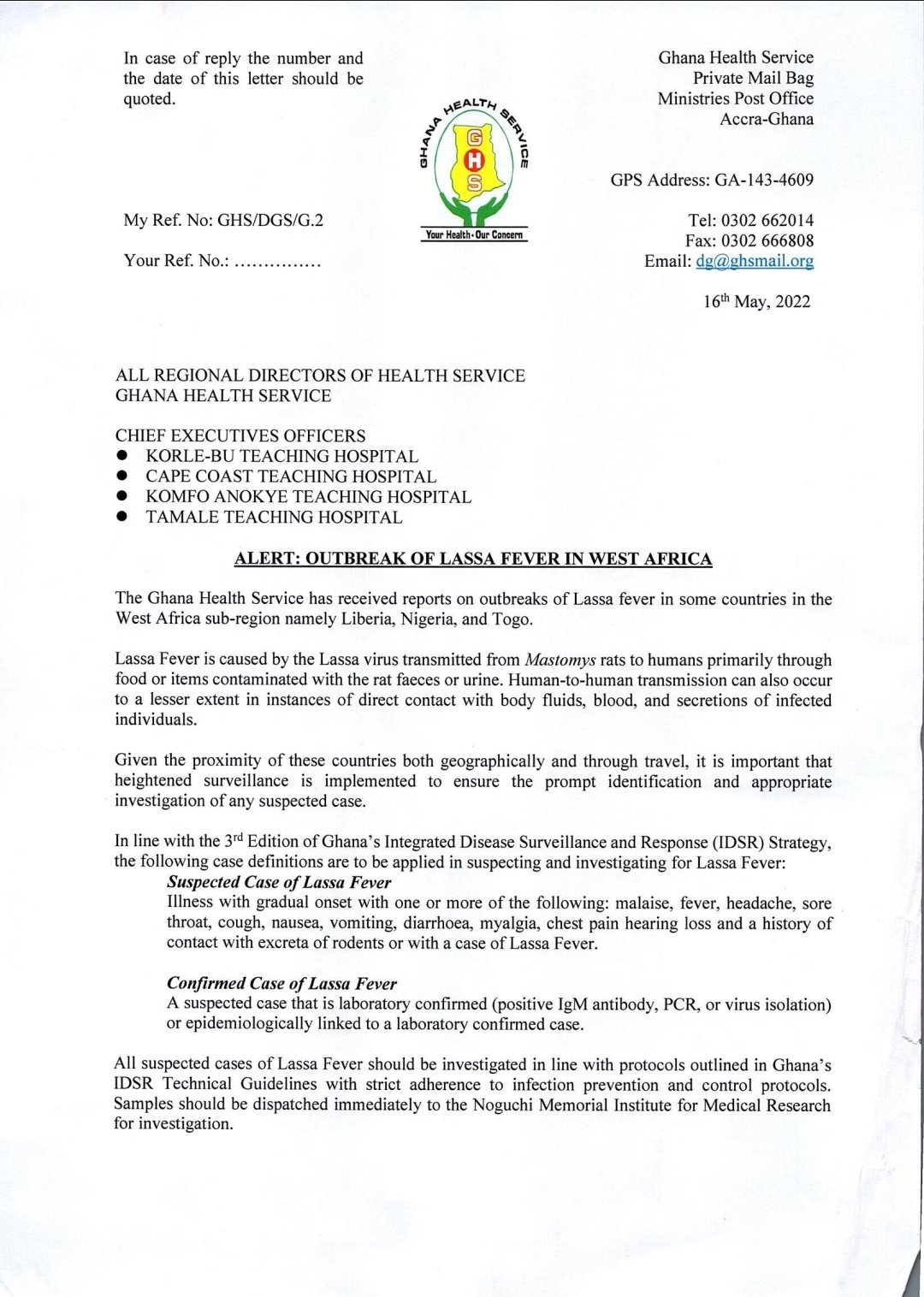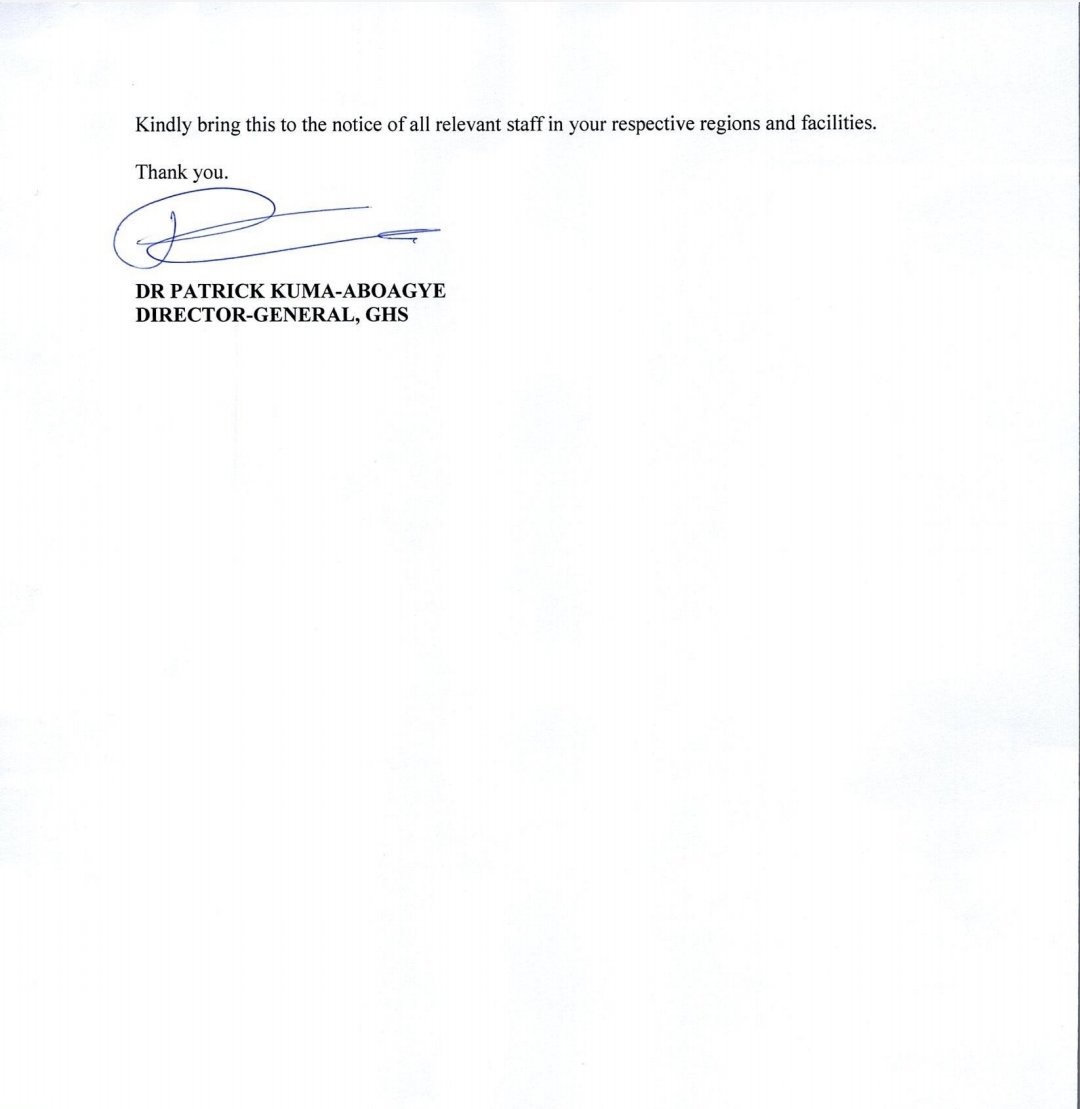
The Ghana Health Services (GHS) has cautioned all Divisional Directors, Regional Deputy Directors of the Service and public health care facilities of the likelihood of outbreaks of Lassa fever in the country.
The alert, GHS explains, is on the back of reports of outbreaks received from countries from Liberia, Togo and Nigeria which are all in the West Africa sub-region.
Given the proximity of these countries, it has been cautioned that heightened surveillance is implemented to ensure prompt identification and investigation of a suspected case.
These were contained in a statement signed by the Director-General, Dr Patrick Kuma-Aboagye and copied to all regional directors of GHS.
“All suspected cases must be investigated in line with protocols outlined in Ghana’s IDSR technical guidelines with strict adherence to infection prevention and control protocols.
“Samples should be dispatched immediately to Noguchi Memorial Institute for medical investigation,” the statement urged.
Below is the full statement:

Lassa fever is an Acute Viral Haemorrhagic Fever illness which is endemic in West Africa with an incubation period is 6-21 days.
Lassa fever virus is transmitted to humans via contact with food or household items contaminated with the urine, saliva faeces, and blood of the rodent (Multi-mammate rat).
The onset is often gradual, with non-specific signs and symptoms and commonly presents with fever, general weakness and malaise.
After a few days, headache, sore throat, muscle pain, chest pain, vomiting, diarrhoea and abdominal pain may follow. Severe cases may progress to show facial swelling, bleeding tendencies (from mouth, nose, vagina or gastrointestinal tract, and low blood pressure.
Shock, seizures, disorientation, and coma may be seen in the late stages. Complications include: deafness, transient hair loss and gait disturbance may occur during recovery.








